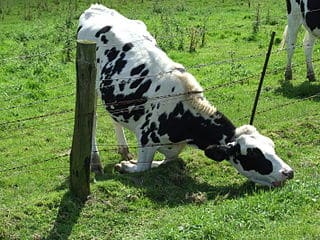What is a proverb?
A proverb is a short sentence or expression. A proverb often gives advice or expresses a common life experience.
In this lesson, you will learn 9 common English proverbs.
Curiousity killed the cat

Literal meaning: When cats are too curious, they put themselves in dangerous situations.
Use and meaning: It is bad to be too curious about other people’s affairs. We say this proverb to nosy people who ask us personal questions.
Example:
Jane: I like your car. Was it expensive?
Sarah: Thanks. Yes, it was very expensive.
Jane: Where did you get the money?
Sarah: Curiousity killed the cat.
So in the above example, Sarah is annoyed at Jane’s curiousity. Sarah is essentially saying: “Stop asking me questions. It’s none of your business. It’s private. It’s personal.”
Don’t put all your eggs in one basket

Literal meaning: If all of your eggs are in one basket, what happens if you drop the basket? All of your eggs break! It is safer to put your eggs in several different baskets because if you drop one basket, you don’t break all of your eggs.
Use and meaning: Don’t put all of your resources into one project or plan. Don’t risk everything on one thing. Diversify. Spread your resources across many projects.
Example:
Investor: I have invested my money in 5 different companies because I don’t want to have all my eggs in one basket.
Don’t count your chickens before they hatch

Literal meaning: If you have 5 eggs, it isn’t certain that 5 chicks will be born. (some might die) Wait until they are all born before you count them.
Use and meaning: Do not come to any conclusions about something before you are certain. Do not make plans based on something happening before you are certain that it will happen.
Example:
Jane: The exam went well. I’m sure I passed. Let’s celebrate!
Sarah: Let’s wait until you get the official results. Don’t count your chickens before they hatch.
The grass is always greener on the other side of the fence

Literal meaning: When you look at the neighbour’s grass, it always seems to be greener (better) than yours. But in reality, the grass is actually often the same.
Use and meaning: The lives and situations of other people and places always seem better. But it is not always the reality. It is bad to always compare yourself to other people, places and situations. Don’t be envious of other people. Be content with what you already have.
Example:
Jane: I hate this small town. It’s so boring. I want to move to London.
Sarah: The grass is always greener on the other side of the fence but London is a very expensive place to live. You might regret moving there.
Cross that bridge when you come to it

Literal meaning: Worry about crossing the bridge only when you arrive at the bridge. Not before. Maybe you won’t even come to a bridge so there’s no point in worrying about it.
Use and meaning: Don’t worry about future problems. Maybe those problems will not happen. Concentrate on the present. If you have problems in the future, you will solve them in the future.
Example:
Jane: If I get the job, how will I find a place to live in London?
Sarah: Cross that bridge when you come to it. For the moment, concentrate on preparing for the job interview.
Every cloud has a silver lining

Literal meaning: The centre of the cloud is dark, but the edges are bright. This is because the sun is behind every cloud. Soon the sun will appear.
Use and meaning: There is always a positive aspect of a bad situation. Don’t be pessimistic. Don’t look at the negatives. Be optimistic. Look at the positives!
Example:
Jane: I am ill. I feel terrible.
Sarah: At least you don’t have to go to work. Every cloud has a silver lining.
Make hay while the sun shines

Literal meaning: Farmers prefer to make hay during the good weather. In fact, it is impossible to make hay while it is raining. It is important to act quickly when the sun starts shining.
Use and meaning: Take advantage of every good opportunity that comes to you. Act quickly when you have a good opportunity. Don’t waste time.
Example:
Supplier: We will be increasing our prices next year. Therefore we advise you to make hay while the sun shines and buy now while the prices are low.
Many hands make light work

Literal and real meaning: A task gets finished more quickly if lots of people are helping.
Example situation – A sales manager is motivating his staff:
Sales manager: This year, we must sell 1000 computers. It’s a big goal but many hands make light work.
Too many cooks spoil the broth

Literal meaning: “broth” is a thick soup. Soup doesn’t taste good if many cooks add ingredients to it. Furthermore, if too many cooks are making the soup, they will get in each other’s way and actually slow down the process of making the soup.
Use and meaning: If too many people are working on the same task, often the results of the task are not good.
Example:
CEO: Why is the project taking so long? It should already be finished.
Manager: The team members are always arguing with each other. Too many cooks spoil the broth. I think we need to reduce the size of the team.
More English lessons
8 idioms about colours
Expressions and phrases with CARE
English idioms & phrases about the body
Common English mistakes – They’re, there and their
Private online English lessons

